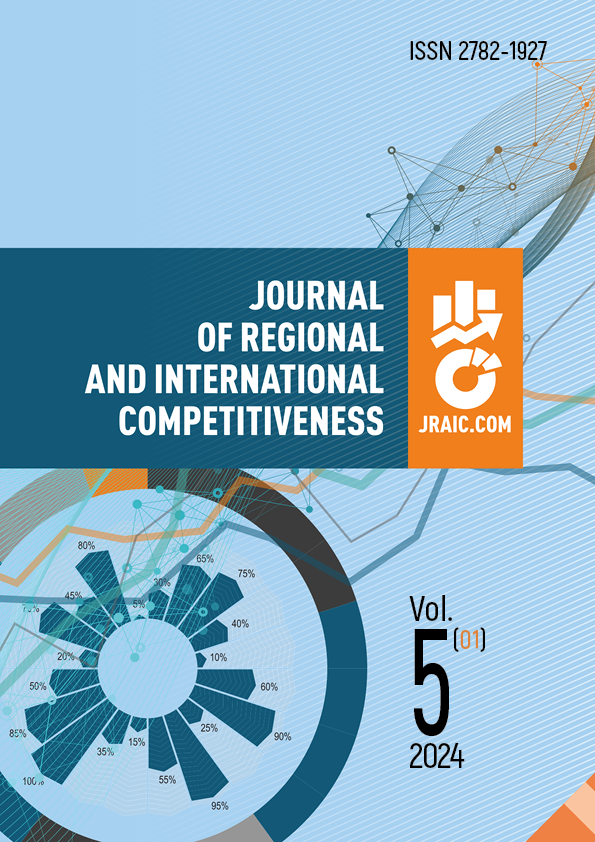Ivanovo, Ivanovo, Russian Federation
Ivanovo, Ivanovo, Russian Federation
The paper analyses the dynamics of unemployment in the Central Federal District regions in 2018-2022. The main issues are problems at the Russian labour market in 2020-2023, and measures of their state regulation taken at the federal and regional levels. The paper considers the measures of state support for the Russian labour market during the COVID-19 pandemic and economic restrictions, and describes their consequences. Also there is an assessment of the role of secondary vocational education system, implementation of state programs and national projects, i.e. the federal projects «Professional», «Young Professionals». Paper listed the professions and specialties in colleges of the Ivanovo and Yaroslavl regions. On the example of the Ivanovo region we consider the establishment of educational and production centres (clusters). The study considers goals, objectives, stages, directions of development, institutional environment, services of the National Qualifications System of the Russian Federation, the essence of Independent Qualification Assessment in details. The study also highlights the role of the state for a secondary vocational education system development.
labour market; staff shortage; secondary vocational education; federal projects «Professionalism», «Young Professionals», «Abilimpics»; System of National Qualifications; Independent Assessment of Qualifications; Central Federal District; Ivanovo region; Yaroslavl region
1. Alpidovskaya, M. L., & Ivannikova, A. A. (2023). Alienation of labor: trends and prospects of global processes. Teoreticheskaya economika, (10), 11-23. Retrieved from http:// www.theoreticaleconomy.ru (accessed 30.11.2023) (in Russian).
2. Antonova, I. A., & Sartakov, I. V. (2021). The COVID-19 pandemic is an accelerator of the transition to digitalization and "smart production". Teoreticheskaya ekonomika, (7), 39-50. Retrieved from http://www.theoreticaleconomy.ru (accessed 30.11.2023) (in Russian).
3. Babushkina, A. V., Bulanova, A. A., & Gruzdeva, M. O. (2021). The impact of the pandemic on the Russian labor market. Vestnik Vladimirskogo gosudarstvennogo universiteta. Seriya "Ekonomicheskie nauki", (1), 101-106. Retrieved from https://vestnik-es.vlsu.ru/fileadmin/No27/Vestnik_No27.pdf (accessed 18.11.2023) (in Russian).
4. Berendeeva, A. B. (2021). Regional labor market: problems and contradictions in the context of the coronavirus pandemic. In Social'no-psihologicheskie, upravlencheskie i marketingovye napravleniya razvitiya cifrovoj ekonomiki: sb. materialov mezhdunar.nauch.-prakt. konferencij po problemam social'noj psihologii, upravleniya personalom, menedzhmenta i marketinga Vyp. 3. Materialy Vseros. nauch.-prakt. konf. «Uroven' i kachestvo zanyatosti naseleniya v usloviyah "postkovidnoj" ekonomiki» (25 fevralya 2021 g., g. Moskva); pod red. E.V. Kamnevoj, M.M. Simonovoj. (pp. 3-13). Moscow: Obshchestvo s ogranichennoj otvetstvennost'yu «SVIVT», (in Russian).
5. Berendeeva, O. S. (2021). Analysis of digitalization of education in institutions of secondary vocational education. In Teoreticheskie i prakticheskie aspekty cifrovizacii rossijskoj ekonomiki: materialy IV mezhdunar. nauch.-prakt. konf. (09 dekabrya 2021 g., g. Yaroslavl'). (pp. 199-207). Yaroslavl: YSTU (in Russian).
6. Berendeeva, O. S. (2023). Training in STEM professions in small towns of the Ivanovo region. In Sb. materialov Vseros. nauch.-prakt. konf. «Malye goroda bol'shoj strany» (Ivanovo 1-3 iyunya 2023 g.). (pp. 168-174). Ivanovo: Ivan. gosudarstvennyj universitet (in Russian).
7. Bylkov, V. G. (2022). Socio-economic prerequisites for the transformation of the labor market in the context of the introduction of unprecedented sanctions. Ekonomika truda, 9(10), pp. 1489-1508 (in Russian).
8. Nikolaeva, E. E. (2021). Problems and prospects of employment of the population in a pandemic (on the example of the Ivanovo region). Vestnik Ivanovskogo gos. un-ta. Seriya: Ekonomika, (2), 62-70 (in Russian).
9. Patrusheva, E. G., Solovyova, D. D., & Podgornova, K. I. (2023). The activities of regional development institutions to promote investment projects in modern economic conditions. Teoreticheskaya ekonomika, (11), 53-63. Retrieved from http://www.theoreticaleconomy.ru (accessed 18.11.2023) (in Russian).
10. Rodina, G. A. (2022). Unemployment in the Yaroslavl region: general and special. Vestnik Ivanovskogo gos. un-ta. Seriya: Ekonomika, (3), 65-72. Retrieved from http://ivanovo.ac.ru/about_the_university/science/magazines/herald/economics.php (accessed 18.11.2023) (in Russian).
11. Semenova, P. A., Shkiotov S.V. & Markin, M. I. (2023). The influence of population size on the dynamics of macroeconomic indicators: the case of Russia. Theoreticheskaya economika, (3), 117-127. Retrieved from http://www.theoreticaleconomy.ru (accessed 18.11.2023) (in Russian).
12. Shpilkina, T. A., Kovalev, A. I., & Filimonova, N. N. (2022). The modern labor market and features of its development in the context of sanctions and digitalization and sustainable development. Ekonomika i biznes: teoriya i praktika, (8), 268-274 (in Russian).
13. Bakhtov, A. S., Emelianenko, M. S., Minyar-Belorucheva, E. Yu., & Jozefavicius, T. A. (2022). Methodological recommendations for the implementation of the new educational technology "Professionalism", which provides for the intensification of educational activities, taking into account the improvement of practical training on modern equipment using integrative approaches. Moscow: FGBOU DPO IRPO. Retrieved from http://www.iro.yar.ru/index.php?id=7134 (accessed 18.11.2023) (in Russian).
14. Regions of Russia. Socio-economic indicators. 2021: Stat. comp. (2022). Moscow: Rosstat (in Russian).




















